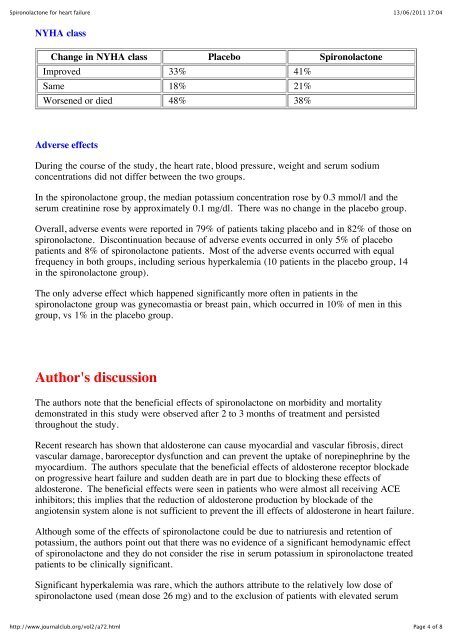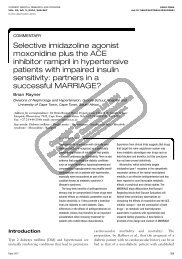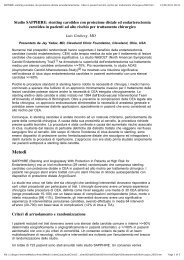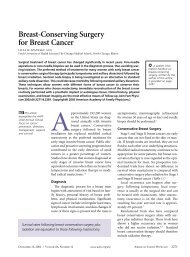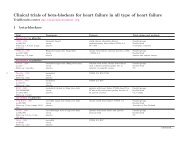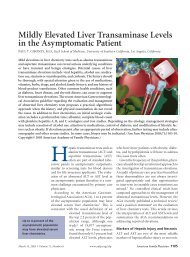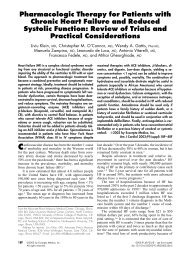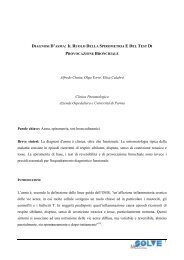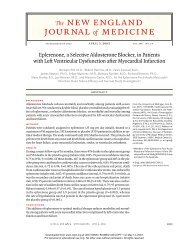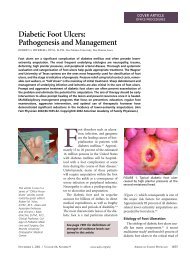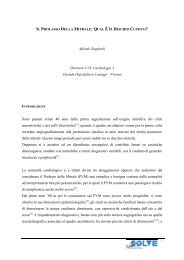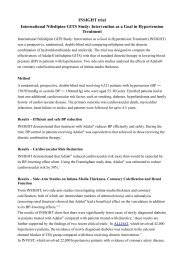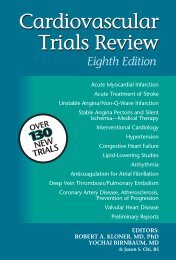Spironolactone for heart failure - Diegori.it
Spironolactone for heart failure - Diegori.it
Spironolactone for heart failure - Diegori.it
You also want an ePaper? Increase the reach of your titles
YUMPU automatically turns print PDFs into web optimized ePapers that Google loves.
<strong>Spironolactone</strong> <strong>for</strong> <strong>heart</strong> <strong>failure</strong>13/06/2011 17:04NYHA classChange in NYHA class Placebo <strong>Spironolactone</strong>Improved 33% 41%Same 18% 21%Worsened or died 48% 38%Adverse effectsDuring the course of the study, the <strong>heart</strong> rate, blood pressure, weight and serum sodiumconcentrations did not differ between the two groups.In the spironolactone group, the median potassium concentration rose by 0.3 mmol/l and theserum creatinine rose by approximately 0.1 mg/dl. There was no change in the placebo group.Overall, adverse events were reported in 79% of patients taking placebo and in 82% of those onspironolactone. Discontinuation because of adverse events occurred in only 5% of placebopatients and 8% of spironolactone patients. Most of the adverse events occurred w<strong>it</strong>h equalfrequency in both groups, including serious hyperkalemia (10 patients in the placebo group, 14in the spironolactone group).The only adverse effect which happened significantly more often in patients in thespironolactone group was gynecomastia or breast pain, which occurred in 10% of men in thisgroup, vs 1% in the placebo group.Author's discussionThe authors note that the beneficial effects of spironolactone on morbid<strong>it</strong>y and mortal<strong>it</strong>ydemonstrated in this study were observed after 2 to 3 months of treatment and persistedthroughout the study.Recent research has shown that aldosterone can cause myocardial and vascular fibrosis, directvascular damage, baroreceptor dysfunction and can prevent the uptake of norepinephrine by themyocardium. The authors speculate that the beneficial effects of aldosterone receptor blockadeon progressive <strong>heart</strong> <strong>failure</strong> and sudden death are in part due to blocking these effects ofaldosterone. The beneficial effects were seen in patients who were almost all receiving ACEinhib<strong>it</strong>ors; this implies that the reduction of aldosterone production by blockade of theangiotensin system alone is not sufficient to prevent the ill effects of aldosterone in <strong>heart</strong> <strong>failure</strong>.Although some of the effects of spironolactone could be due to natriuresis and retention ofpotassium, the authors point out that there was no evidence of a significant hemodynamic effectof spironolactone and they do not consider the rise in serum potassium in spironolactone treatedpatients to be clinically significant.Significant hyperkalemia was rare, which the authors attribute to the relatively low dose ofspironolactone used (mean dose 26 mg) and to the exclusion of patients w<strong>it</strong>h elevated serumhttp://www.journalclub.org/vol2/a72.htmlPage 4 of 8


